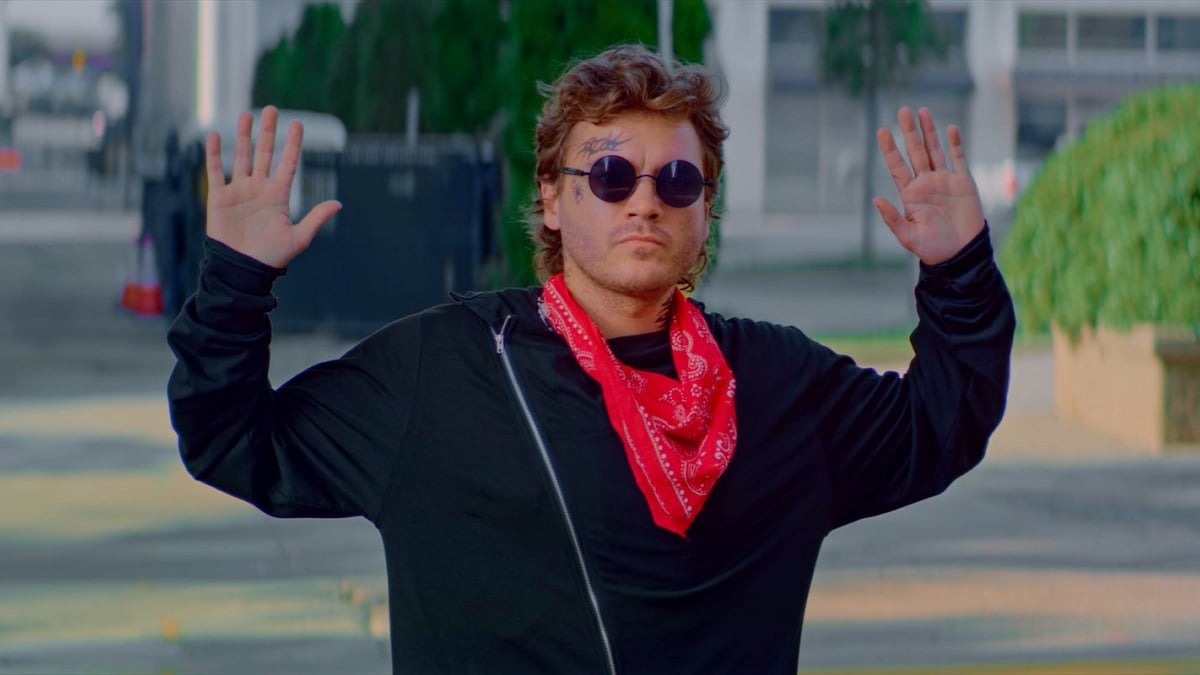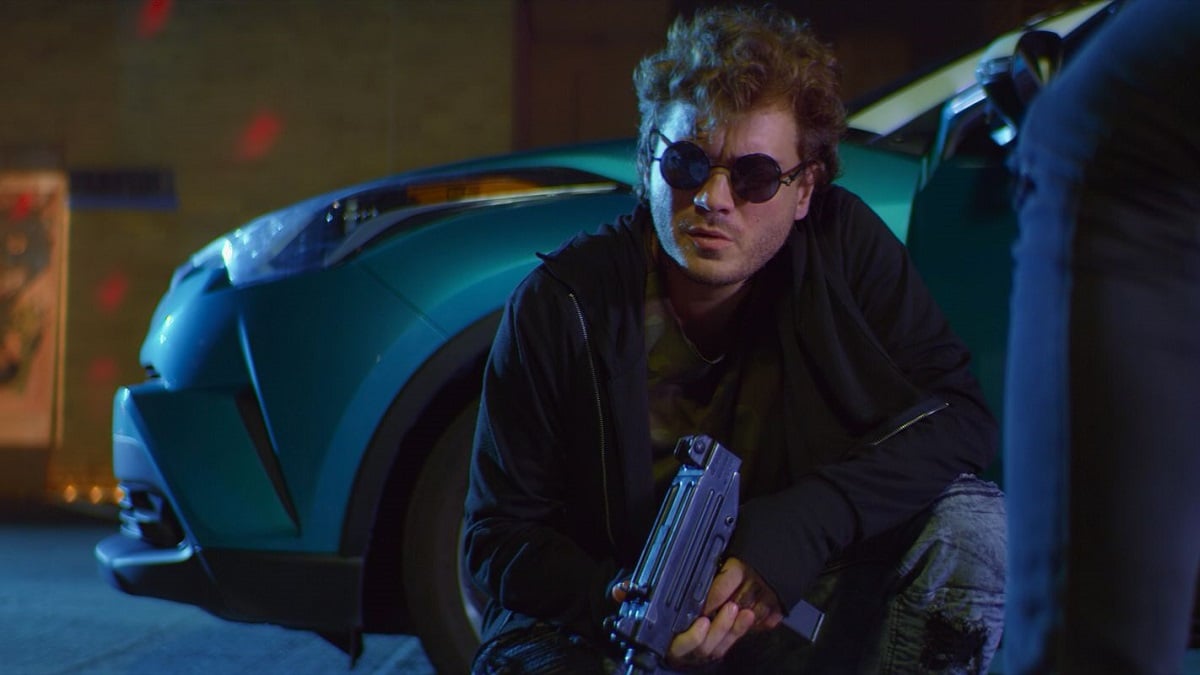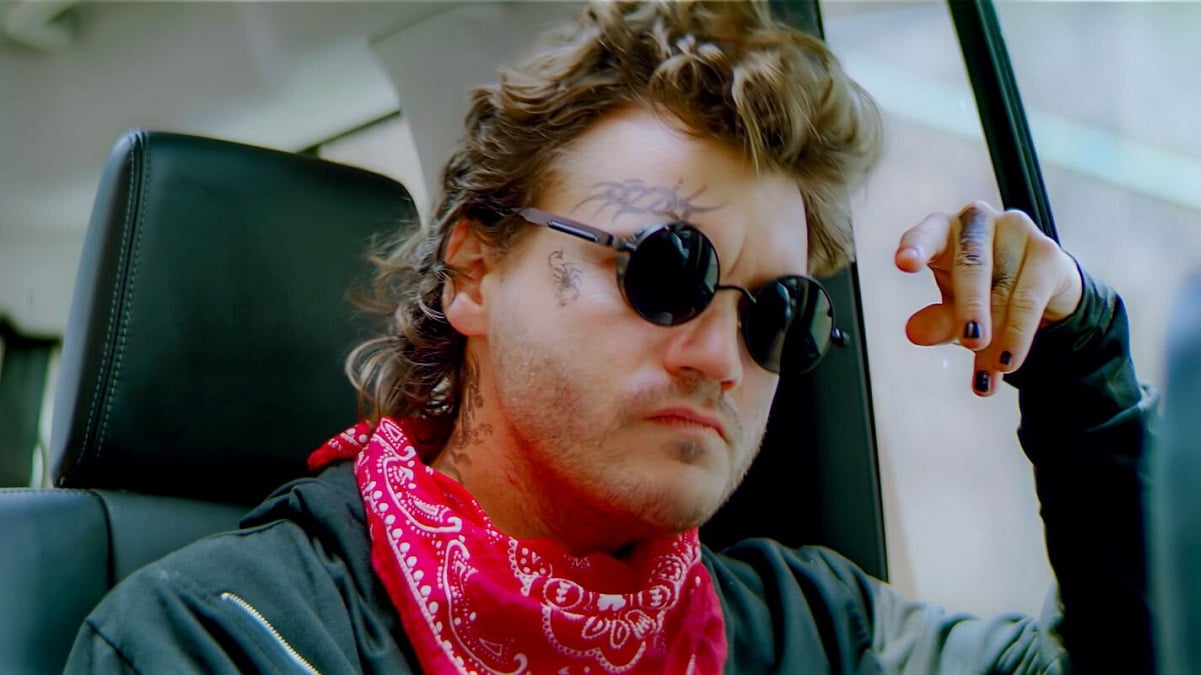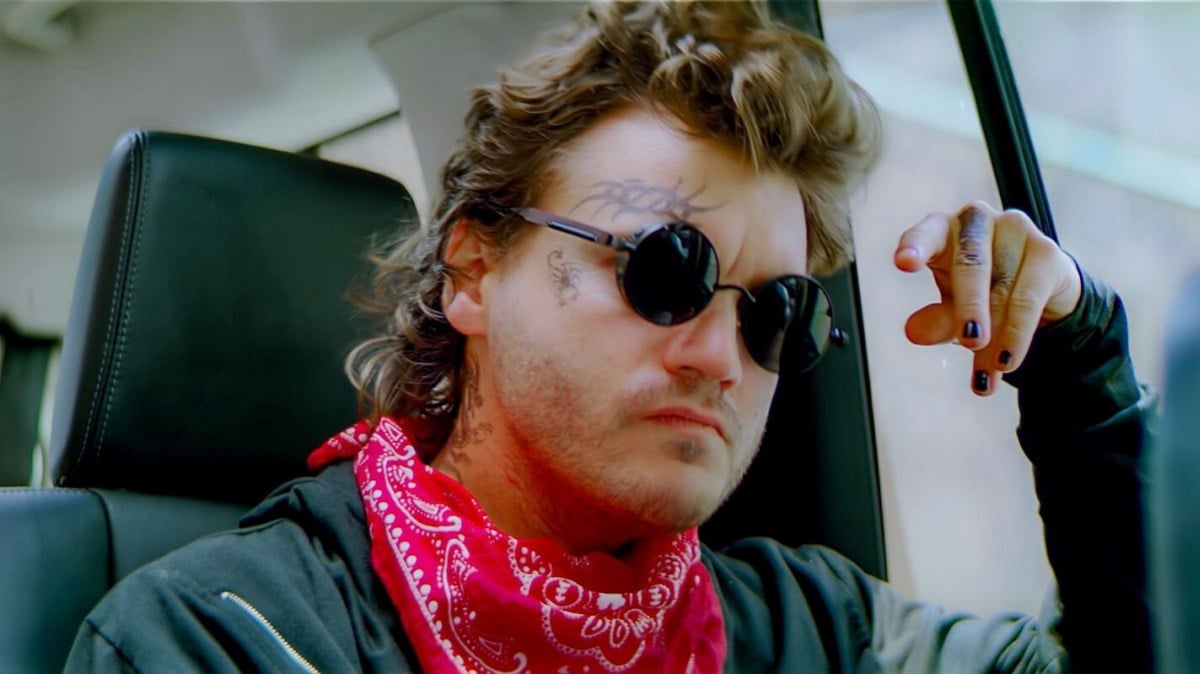Tomorrow brings the release of action thriller Pursuit, the latest feature from writer, director, editor, and occasional stunt performer Brian Skiba.
Emile Hirsch stars as Rick Calloway, a hacker seeking to rescue his kidnapped wife from a drug cartel. Along the way, his story intertwines with that of Jake Manley’s dogged detective Mike Breslin, and Elizabeth Ludlow’s Arkansas sheriff Zoe Carter, while John Cusack plays Rick’s father John Calloway, a man who definitely shouldn’t be messed with.
Ahead of Pursuit‘s release tomorrow, We Got This Covered had the chance to talk to Skiba about the movie, his love for wearing many hats on a production, working with talents like Hirsch and Cusack, the surprisingly dark tone of the film, and much more, and you can check out below what the filmmaker had to say below.

On Pursuit, and a lot of your movies, you’ve been credited as writer, producer, editor, stunt performer, and more. How do you decide which projects are going to have you wearing a lot of hats, or is it all a matter of circumstance?
Brian Skiba: That really ends up being circumstance. You’re on set, and I mean, there’s certain things that I definitely love to do. I mean, as a director, you always get into the writing. Typically with this one, the producers asked me to do a rewrite, and so I ended up earning my credit that way. And then, as far as stunts go, I’ve always loved doing stunts.
So when the opportunity came up on this one to jump in and do one, I was like, “Sure, man. Let’s do it”. You know, getting shot up is always fun! I think the other stuff kind of ends up being circumstance. You know, it’s just a lot of these films there’s not quite the budget there, so I ended up just kind of filling those gaps to make sure we can get what we need.
When I was watching the movie, I noticed you early on with the sunglasses on.
Brian Skiba: Yeah, I get shot up there! The stunt performer didn’t show up, and so I was like, “Squib me up, you know, put me in”. So there’s a lot of fun, it’s a lot of fun. Definitely something I enjoy doing.
A lot of directors can be self-indulgent when they make cameos in their own movies, so it’s refreshing to have someone like yourself come in who gets shot up in the first ten/fifteen minutes.
Brian Skiba: That’s right! You know, you gotta pull the Alfred Hitchcock once in a while, so what better way than to get shop up! You know, I thought it was great.
It’s been a quick turnaround, with Pursuit only wrapping a couple of months ago. Do you enjoy the pressure that comes with getting a movie ready for release on such a tight schedule, or are there always nerves?
Brian Skiba: It was nerves. We were on set, and the producer Andrew Stevens came up to me, and he was like, “Hey, they’d like this thing delivered a little sooner. They want it to release in February. Can we do it?”. And it’s one those, like, “I think so”. And so you just dive in. I mean, it’s one of those; you don’t tell Lionsgate no.
And so, you know, you just do it. And, as far as the creative goes, when it comes to the edit, I would always love a little more time. I think I’m one of those kind of perfectionists in my edit. And I really like to smooth it over, let it sit for a couple of days, come back, smooth it over again.
Really, because the edit is your final product. I mean, that’s filmmaking, and so that’s where I think it gets a little nervous, because it’s like, “Oh man, is it really ready?”. And that’s where it gets difficult.

Somebody once said to me that directors are never finished with a movie, they just get it taken away from them at a certain point. Is that something you agree with?
Brian Skiba: I think to a point. I mean, fortunately, I’m not. I know when to let go. It’s sometimes a little harder than others. Other projects, it’s tough. But there’s definitely a point where you let go, and then some projects I don’t watch. I’ll let it sit for quite a while and then I’ll sit, and then I’ll watch it, because if I watch it too soon after I’ve been in the edit room and the sound mix and everything, I start seeing everything that I wanted to change, you know, and then you can’t call them errors.
It’s just, you want it to be bigger, you want something here, you wanted that visual effect that you can’t afford, you know, and so it’s like it’s better to just let it sit for a minute and then come back with fresh eyes. And then you’re like, “Oh, okay, yeah. Okay, this works”. I’ll be watching Pursuit for the first time in like two months on Friday, so…
Pursuit is a lot darker than people might be expecting, in terms of both tone and themes. Was that something that was always part of the script, or did the tone of the piece as a whole come together during the writing process?
Brian Skiba: Yeah. You know, I think There’s a aspect of my filmmaking that’s not been really tapped. And I’m getting there, you know, and it’s these darker tones, you know, and I’ve got another film that we’re currently casting that’s very dark. I actually enjoy those themes, you know, and those darker tones, and it was refreshing to have a project come to me where I was like, “Okay, I could actually go that direction a little bit more, you know, and, and deal with the uglier side of humanity”. I mean, it was very refreshing. And so yeah, I definitely was able to apply that, because when I initially got the script, it wasn’t much like that.
How did John Cusack get involved in the project? Because Pursuit is his first movie credit in almost three years.
Brian Skiba: Yeah, I mean, John and I have kind of touched base on a few projects over the years. And we had one about two years ago, that was close to getting financing. And then we had a few others. And finally, this one, the producers came to me like, “What you think about John?”. I was like, “I love John!”. He, and I, we were acquaintances at that time.
And so they sent him the script, and he saw the same thing, he saw a piece that could be kind of a darker, indie kind of action film, you know, where it’s not just your straight muscle-head running around shooting people for no reason. And I think that’s what attracted John to the project, was we were going to go after something a little different, a little more edgy, an indie film that’s dark and has all this action in it as well, you know, so I wanted to create action with meaning.
And so when I pitched that to John, he was like, “Yeah, man”, and he came in actually, first and early. And he and I started working together on the script. And so there’s a lot of those tones in there also, because of mine, and John’s, you know, collaboration.

I’m curious to ask how long he was on set for? Because I spoke to Jared Cohn recently, who works with Bruce Willis a lot, and he said a good director can make a day and a half look like two weeks if there’s enough coverage and a smart edit.
Brian Skiba: Yeah, I know, Jared very well. He directed a film I wrote. He’s absolutely correct. John was on set for three days. So we had him for three days, and Emile was on set for the same amount of time, three days. There’s a lot of camera tricks and body doubles. And, you know, there’s ways to shoot and make it seem like you did have them for two weeks. And yeah, I mean, we had John three days and Emile for three days. And obviously, it looks like they’re in the film the whole time.
Emile in particular, from watching the movie you’d never be able to tell he was only on set for that short amount of time.
Brian Skiba: Yeah, and Emile was outstanding. I mean, he brings a character he you know. Rick is a hacker that I created, and then Emile took it and built this beautiful character that I really enjoy. And he started he called me, he’s pitching me the voice, you know, the voice of Rick. I was like, “It’s awesome”. So having these guys come to set, you can get away with three days, because you don’t need ten takes, you know? They’re pros. I mean, they’ve come 100%. They’ve got their characters built.
John and Emile are both playing characters that we don’t really see from them all that often; the dangerous criminal and tattooed washout out for revenge. It must be fun to direct two talents when they’re playing outside of their usual wheelhouse?
Brian Skiba: Oh, yeah. And they were looking forward to it as well. I mean, Emile was was absolutely excited about this character. And we had offered him the lead, honestly. And he came back and said, “I’m more interested in Rick”, because he felt like Rick was more diverse.
And so, it was it was nice. And John the same thing. You know, he felt like he’s playing this very layered bad guy. You know, a guy that cares about his family. He cares about his son, he’s doing the hard thing, and that’s really what the story comes down to. John Cusack doing something that’s extremely hard for the betterment of his son, but his son is grateful for it. I think that’s something as a parent we all have to deal with at some point with your children, is you gotta crack down and be like, “Look, this is even… though it’s not pleasant for you, I’m doing it for you. Because I know if I don’t in the future, it’s gonna cost you”.
And ultimately Emile’s character, Rick, didn’t appreciate it. Even though John was doing it all for him. And then, so I feel like that was a piece of the character that John really grasped onto and gives a great performance.

Rick and Mike are almost two sides of the same coin, just on different sides of the law. It makes for an interesting dynamic, so was the intertwining of their arcs always what you could almost call the main storyline? Even though there are multiple plot threads.
Brian Skiba: I think I think it’s the intertwining of Emile and Jake Manley, who plays Mike Breslin. I feel like it’s in there. intertwining is definitely kind of the main main story. Jake plays the character, Mike Breslin, who’s a police officer whose wife was murdered, and he has no idea who did it, you know?
And I feel like that is one of the main plots, along with with Rick’s plot, which is his wife’s been kidnapped. And he was on the search for who did it, so these guys have very similar storylines, and they can help each other. And so, I feel like that was kind of the main idea. And then, John’s plot is a very close, you know, kind of like an A-minus storyline, I guess you’d call it, but it’s right there, too.
The 2nd ended up finding a big audience on Netflix, how does it feel as a filmmaker when one of your movies finds a new audience and performs so well on a platform with over 200 million customers?
Brian Skiba: It felt amazing, honestly, it felt really amazing. And it’s, I can only akin it to like having a number one song, you know, it was that kind of feeling where it’s like, people are appreciating your work and watching it and enjoying something that you’ve put your blood, sweat, and tears into. And that’s always amazing.
And I appreciate all the fans and all the viewers. and I hope the same goes for Pursuit because I really feel like it’s on the same level. It’s, you know, it’s a very diverse film. It’s got layers, and it’s action-packed. And so I really feel like it performs the kind of same, you’re not going to be disappointed if you enjoyed The 2nd, you’re definitely not going to be disappointed with Pursuit.
That concludes our interview with Brian Skiba. Pursuit is available on-demand and in select theaters from tomorrow, February 25.

